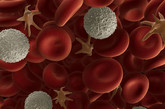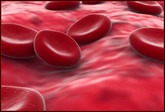Biosimilars/Research
Biosimilars compared to generics in the European market
Once a patent expires, price competition is possible since any manufacturer can copy the originator product. This circumstance justifies the place in the pharmaceutical market for generics and biosimilars, i.e. off-patent medicines to be sold at lower prices than their originators [1].
Impact of nephrology subsequent entry biologics in Canada
Subsequent entry biologics (SEBs) may soon be a reality in Canadian nephrology practice. Along with opportunities to reduce healthcare costs, these agents pose unique challenges to successful implementation. Understanding the experiences around the globe in both regulatory affairs and implementation will be a valuable guide for Canadian clinicians. This review should assist clinicians and policymakers to navigate this complex subject and to make informed decisions in the best interest of their patients [1].
No relevant difference in ADRs from biosimilars and originators
A study of adverse drug reactions reported in Italy has shown no difference between the number and type of side effects reported for biosimilars and their corresponding originators [1].
Filgrastim biosimilar has similar safety and efficacy to Neupogen
A filgrastim biosimilar (EP2006) from Sandoz, the generics division of Swiss pharma giant Novartis, has shown similar safety and efficacy compared to Amgen’s Neupogen (filgrastim) in a pivotal phase III clinical study.
Improved labelling sought for biosimilar acceptance
The terms of approval for every biosimilar and its reference product must be made clearer, argue the European Biopharmaceutical Enterprises (EBE) [1]. The development of biosimilar regulatory pathways worldwide has been led by the European Medicines Agency (EMA) [2], but EMA’s information-driven stepwise approach is only reflected in a single section of the product labelling for healthcare professionals and patients, which so far has followed a generic approach in Europe.
Regulating the safety of biosimilars
Clinical safety is critically important during the development of a biosimilar. An overview of the main aspects of safety assessment of biosimilars has been prepared to assist all those interested in this area of growing importance [1].
Biocomparable has comparable safety and efficacy to originator erythropoietin in haemodialysis patients
A study of the treatment of patients with chronic kidney disease undergoing haemodialysis with ‘biocomparable’ and originator erythropoietin in Mexico has shown comparable efficacy and safety in terms of changes in haemoglobin levels [1].
Phase I study shows darbepoetin alfa biosimilar to be well tolerated
Chong Kun Dang Pharmaceutical (CKD Pharma) announced on 18 November 2014 the successful completion of its phase I pharmacokinetics study for its biosimilar darbepoetin alfa product.
Extrapolation of indications in biosimilars: epoetin
Despite a stringent approval process, acceptance of biosimilars in the medical community continues to be low, and especially in extrapolated* indications. Members of the European Medicines Agency's (EMA) Biosimilar Medicinal Products Working Party (BMWP) address these concerns using extrapolation of indications in biosimilar epoetin as an example [1].
Non-biological complex drug concept: experiences with iron sucrose and low molecular weight heparin
When the patent of a classical small molecule drug expires, generics may be marketed if their therapeutic equivalence to the originator drug has been established. The therapeutic equivalence of a drug includes both pharmaceutical equivalence and bioequivalence and do not require formal clinical efficacy and safety studies. The demonstration of therapeutic equivalence then allows for the interchangeability of the generic and originator drug. This approach has so far only been applied to products that can be fully characterized. For more complex molecules, which are difficult to characterize, such as proteins, the demonstration of bioequivalence requires an alternative approach.













